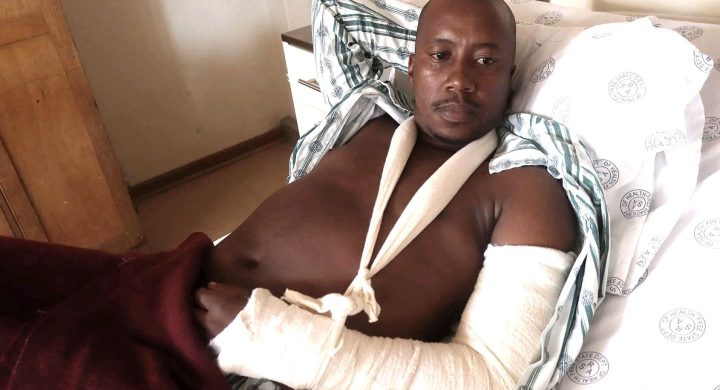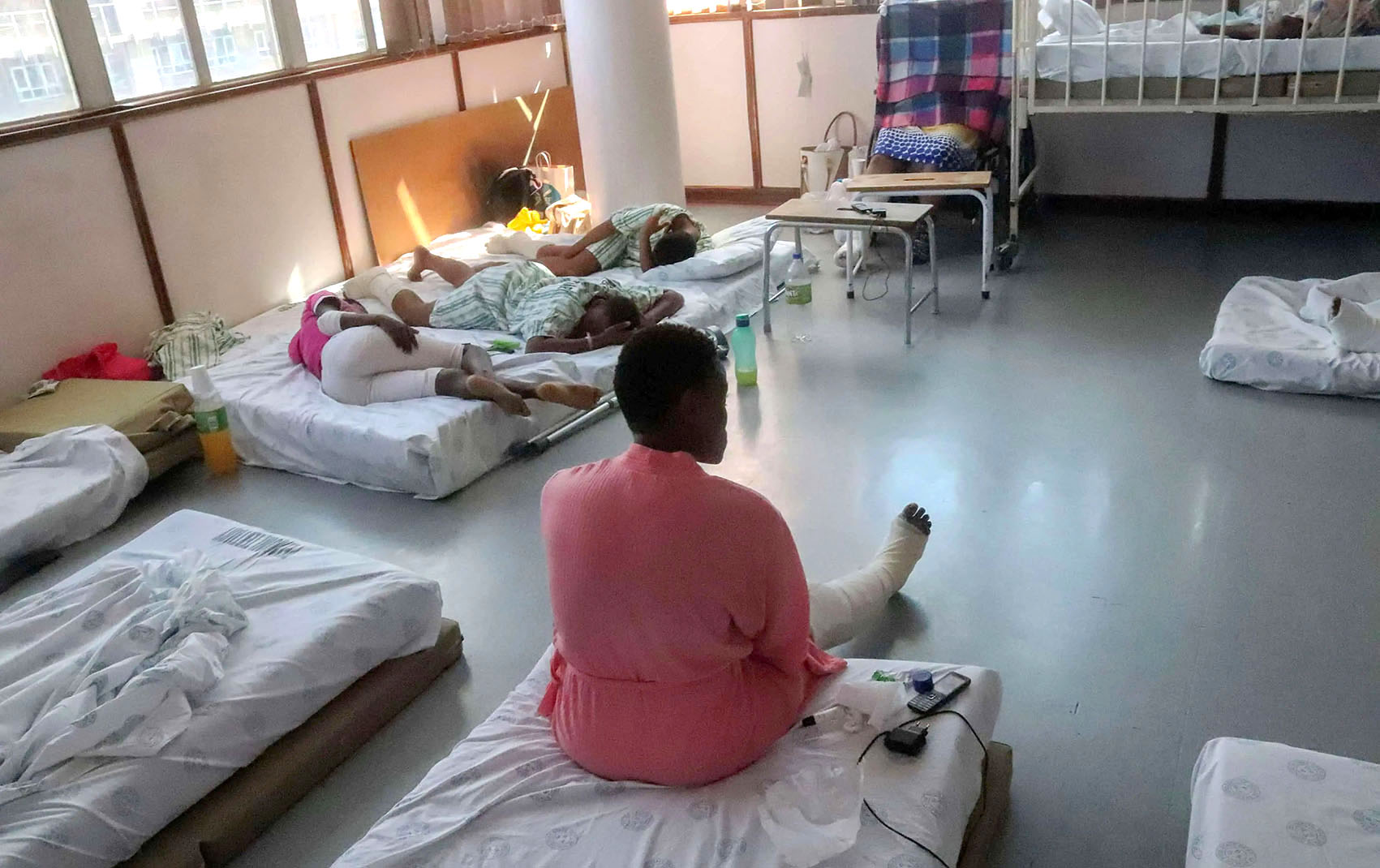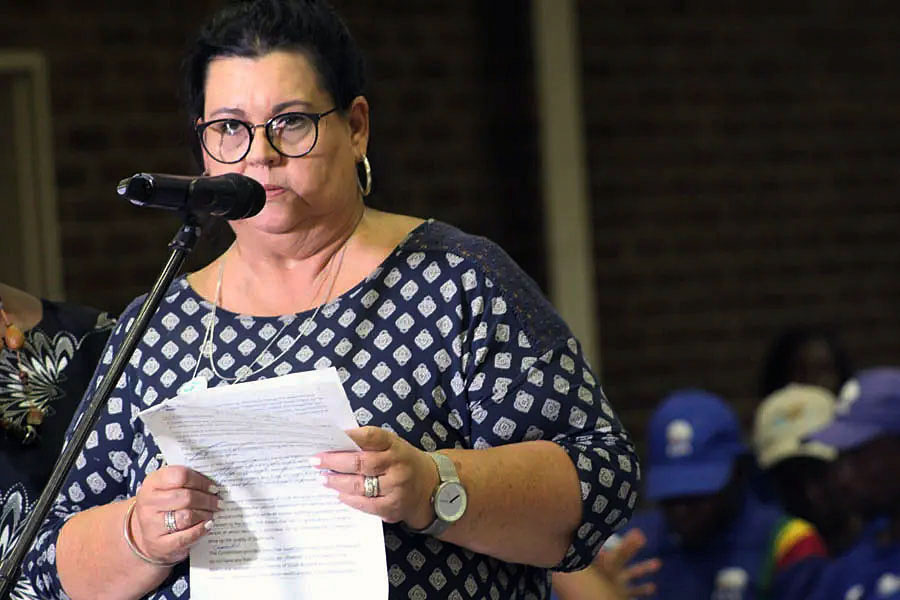SPOTLIGHT
Unacceptably long waits for surgery in Free State, say healthcare workers and patients

Surgical waiting lists are not unexpected in the context of Covid, but there are indications that the situation is particularly acute in the Free State — and possibly for reasons that are not directly related to the pandemic. Also, the department of health has failed to offer any explanation or details of current surgery waiting lists and waiting times reported by healthcare workers and patients.
According to a doctor based at a large hospital in Mangaung, who spoke to Spotlight on condition of anonymity, hundreds of patients are waiting for surgery, some for as long as six weeks.
According to the doctor, people with fractures that should be operated on within 48 hours are often not given surgery in time. This can lead to complications down the line.
The doctor said patients are getting agitated and that the situation is placing enormous stress on healthcare workers.
One reason for the long waiting lists, according to the doctor, is that many consumables and devices required for surgery are chronically out of stock.
The doctor suggested this had to do with a procurement freeze after a National Treasury directive issued on 3 March. The directive has since been retracted following a clarification from the Constitutional Court.
A nurse working in an orthopaedic ward at a hospital in Mangaung, also speaking on condition of anonymity, says there is a shortage of nurses and specialists, which is why patients have to wait so long to be taken to theatre.
“This is a ward where patients are suffering the most in the whole hospital,” the nurse says.
“First, patients are forced to be in the waiting room because there is a shortage of beds… when they are eventually given bed space after suffering in the waiting room for many days, they still have to wait for their turn to be operated on… they can stay for many months in the hospital without getting the help they need.
“When they are told that they have been scheduled, they are told not to eat food in preparation [for] the surgery, only for it to be cancelled… which means they are sometimes forced to go without food for a day or two. As a nurse, we see all these things, but we cannot talk because we fear for our jobs.”
The situation at Pelonomi
When Spotlight visited Pelonomi Hospital in Mangaung earlier in June, we found patients sleeping on the floor in the waiting room of the orthopaedic ward — some on old mattresses, some on chairs, some in wheelchairs. Some patients were wearing plaster casts. It was a cold winter morning and not everyone in the waiting room had blankets.
One patient told Spotlight that they had been in the waiting room for days because there was no bed available for them.

Patients in a waiting area at Pelonomi Hospital in Mangaung, Free State. (Photo: Khothatso Mokone)
Mmathabo Mokoena, 58, from Edenburg about 80km outside Bloemfontein, told Spotlight she had been sitting and sleeping on a chair since 30 May. She says she was only allocated a bed on 14 June. When Spotlight checked in with her on 17 June, Mokoena had been discharged that afternoon and was on her way home — with no surgery having been performed.
Her first visit to Pelonomi Hospital was on 13 May. “I fractured my hand at home. I visited the clinic in Edenburg and was taken to Pelonomi by ambulance.
“I went to the hospital’s orthopaedic clinic for X-rays and a plaster cast was put on my hand. I was told to come back on 30 May for a follow-up,” she said.
“On 30 May, when they did another X-ray on me, they realised they made a mistake and that my bones were not properly connected… which is why I had been in a lot of pain the whole time since 13 May when I received the plaster cast.
“I had to be immediately referred to ward 5, and this is why I have been sitting on a chair from that day until 14 June when I was finally allocated a bed and admitted,” she says.
“Today, on 17 June, I have been discharged but I did not get an operation. They did nothing on my hand. When I ask why I was discharged with no work being done on me, they say my hand does not need surgery anymore. They say I am healed. Just like that. So this means that I have been here for nothing.”
Another patient, Masego Legetho, 25, told Spotlight she had been in the waiting room from 1 June. She needs surgery on an ankle fracture, which involves the insertion of screws and plates. When Spotlight checked in with Lekgetho on 17 June, she was still waiting for surgery.
“I don’t live far from the hospital. My home is in the same neighbourhood so I asked the nurses if I can at least go home so that I can have a peaceful sleep, but they tell me that is not how it works,” she said.
“My problem with being here is that I am in pain. It is cold. We bath with cold water and we share bathrooms with males,” she said. “This is the most uncomfortable situation that I have ever been subjected to.”
Just one of many problems
Mariette Pittaway, health spokesperson for the Democratic Alliance in the Free State, says the orthopaedic surgery waiting lists are just one of many problems that are faced by the department.

Mariette Pittaway, health spokesperson for the Democratic Alliance in the Free State, says the orthopaedic surgery waiting lists are just one of many problems faced by the department. She says the Free State MEC for Health, Montseng Tsiu and the Head of the Free State Health Department, Godfrey Mahlatsi, are blatantly ignoring the crisis. (Photo: ParliamentRSA / Spotlight)
She charges that the Free State MEC for Health, Montseng Tsiu, and the head of the provincial health department, Godfrey Mahlatsi, are blatantly ignoring this crisis.
“They do not care,” she says. “The department is negligent and has no regard for the livelihood and wellbeing of patients.”
Pittaway mentions a case in Boitumelo Hospital in Kroonstad where a patient has been in hospital for seven months waiting for surgery.
“She was involved in a car accident in Parys in December 2021 and has been in hospital since then. She broke her knee disc, pelvis socket and her pelvis. She was informed by a surgeon that she will have to get a prosthesis in her hip,” says Pittaway.
“Every week she is prepared for surgery only to be told in theatre that the surgery has been cancelled. There is a new story every week. Sometimes there is no aircon in theatre, sometimes the doctor is sick, or sometimes they say they don’t have the apparatus to sterilise equipment,” she says.
“On Wednesday 15 June, she went into theatre again, but has still not received any help. This time she was cut open but closed again without any work being done on her. As we speak, she is still in hospital.

Free State Health MEC Montseng Tsiu. (Photo: IT News Africa / Wikipedia)
“I have written letters to the HoD and the MEC about this patient, but they blatantly ignore me,” says Pittaway. “Every week there is an excuse as to why the procedure was not done.”
Health Department responds
Spotlight asked the Free State Department of Health how long the waiting lists are and what the current average waiting times are for surgery at large hospitals like Pelonomi and Universitas.
Department spokesperson Mondli Mvambi did not provide specifics in his response.
“All patients are evaluated at point-of-care (emergency rooms and clinics) and triaged using international criteria. Emergencies that are considered life-threatening are taken to theatre within usually 30 minutes to an hour. Emergencies classified as urgent are operated usually within six hours.”
He did not provide details on the length of surgical waiting lists at large hospitals, as we requested.
“Patients requiring elective surgery are all seen at clinics… a triage system is applied with certain conditions getting priority over other conditions. For example, cancer surgery will get priority over cosmetic surgery. Some elective non-urgent surgery will then be delayed to prioritise more urgent cases,” he said.
Four months ago, in February, the department released a media statement saying that some district hospitals — which include Boitumelo Hospital in Kroonstad, Dihlabeng Hospital in Bethlehem and Mofumahadi Manapo Hospital in Qwaqwa — have been provided with orthopaedic equipment to avoid unnecessary referrals to Pelonomi Hospital.
Theatre space was also reportedly prepared at Alfred Nzula Hospital in Trompsburg for pre-booked patients, including those on the waiting list at Pelenomi Hospital.
“The high volumes of trauma, injury and violence overwhelm our staffing levels and require more theatre space, time and resources,” the department said at the time.
“There are currently 66 patients that Pelonomi is working on to schedule for orthopaedic surgeries this week, including those that are referred for surgery at Albert Nzula District Hospital.
“Already, Pelonomi has done 251 surgeries in November 2021, 250 surgeries in December 2021, 253 surgeries in January 2022, and so far 134 for February 2022.”
Regarding the impact of the National Treasury directive, Mvambi earlier this month told Spotlight that Universitas Academic Hospital, Pelonomi and other health facilities in the Free State were not affected “as 90% of items used in surgery are under contracts”.
It is not clear what steps the department did or did not take to ensure the continued procurement of the remaining 10% of items required for surgery.
Mvambi only said, “The Department aligned itself with Section 3C of the Preferential Procurement Policy Framework Act upon receipt of the letter received from Director-General: National Treasury dated 3 March 2022. Exemption from the provisioning of the Act was requested from the Minister of Finance.”
Our understanding is that such exemptions would have been required for the procurement of goods required for surgery to continue. It is thus not immediately clear why the shortages reported by the doctor had occurred. DM/MC
This article was published by Spotlight — health journalism in the public interest.





















 Become an Insider
Become an Insider
Comments - Please login in order to comment.